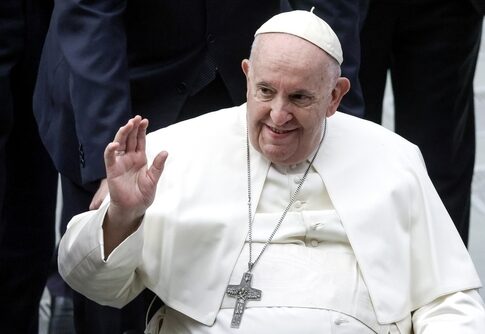Jack Schlossberg has publicly accused Vice President J.D. Vance of “killing the pope” following Pope Francis’s death. The explosive allegation came shortly after Vance had a private meeting with the pontiff just hours before Francis’s passing, fueling conspiracy theories across social media platforms. Should Schlossberg’s accusation be taken seriously, given his recent history of online trolling?
The Controversial Accusation
Jack Schlossberg, grandson of President John F. Kennedy, sparked outrage when he posted “Okay JD killed the pope” on social media following Pope Francis’s death. The accusation came just hours after Vice President J.D. Vance had met with the 88-year-old pontiff at the Vatican on Easter Sunday.
Vance, who converted to Catholicism, had received several gifts from Pope Francis during their meeting, including chocolate Easter eggs, a Vatican tie, and rosaries. The timing of the Pope’s passing shortly after this meeting became the foundation for Schlossberg’s inflammatory claim.
SICK! Kennedy grandson Jack Schlossberg ACCUSES VP Vance of KILLING the Pope! "JD killed the pope," he posted! The UNHINGED left spreading VILE conspiracy theories about "Ricin poison" in handshake! THIS is what passes for "respectable discourse" from Democrats! 9/15 pic.twitter.com/BvZeAXR3Wo
— Next News Network 🇺🇲 (@NextNewsNetwork) April 21, 2025
Political Fallout and Social Media Storm
Schlossberg doubled down on his attack through Instagram, writing, “WHAT DID JD DO? VP OF LITTLE FAITH meets with Pope YESTERDAY, today Pope dies.” His post continued to praise Pope Francis as “an incredible, towering figure who transformed the Catholic Church to be more DIVERSE EQUITABLE AND INCLUSIVE” while claiming “his parting gift to us was the fact that he did not like JD VANCE, VP of little Faith, at all.”
Following Schlossberg’s posts, coordinated attacks against Vice President Vance emerged online with hashtags like #JDVanceKilledThePope and #Antichrist trending. Critics have characterized these attacks as representative of far-left tactics aimed at Christian political figures.
#jdvancekilledthepope pic.twitter.com/jEctq9t0tN
— Phil McKevitt (@Iaresmart813) April 21, 2025
Responses and Context
Vice President Vance responded to the Pope’s death with a solemn statement: “I just learned of the passing of Pope Francis. My heart goes out to the millions of Christians all over the world who loved him.” He added, “I was happy to see him yesterday, though he was obviously very ill.”
The meeting between Vance and Pope Francis had initially faced complications, with reports suggesting an earlier rebuff on April 19 that some interpreted as a snub related to disagreements on immigration policy. Despite this, the Easter Sunday meeting proceeded, with Vance later stating, “It was an honor to meet with Pope Francis, Prime Minister Meloni, and Church officials in Italy this weekend.”
Schlossberg has previously defended his provocative social media presence, stating, “The internet is a place where it’s difficult to break through, and it’s difficult to break through especially if you’re not saying something that’s controversial, or at least, somehow unexpected.” He has characterized his online behavior as “strategic” rather than erratic, saying, “The internet is a place to be weird… I use my judgment to make posts that I think are funny or silly but have a purpose.”
The controversy highlights growing tensions in American political discourse, where even the death of a religious leader can become fodder for partisan attacks. Conservative commentators have pointed to this incident as evidence of disrespect toward both religious institutions and the office of the Vice President from those aligned with progressive politics.


